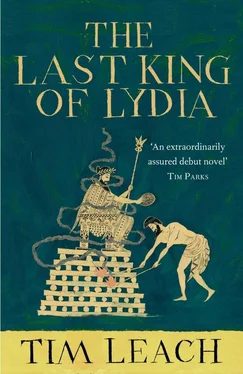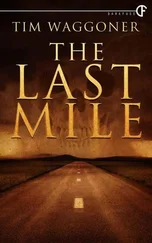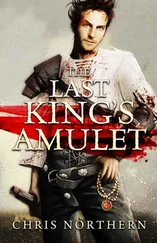Tim Leach - The Last King of Lydia
Здесь есть возможность читать онлайн «Tim Leach - The Last King of Lydia» весь текст электронной книги совершенно бесплатно (целиком полную версию без сокращений). В некоторых случаях можно слушать аудио, скачать через торрент в формате fb2 и присутствует краткое содержание. Год выпуска: 2013, ISBN: 2013, Издательство: Atlantic Books Ltd, Жанр: Исторические приключения, на английском языке. Описание произведения, (предисловие) а так же отзывы посетителей доступны на портале библиотеки ЛибКат.
- Название:The Last King of Lydia
- Автор:
- Издательство:Atlantic Books Ltd
- Жанр:
- Год:2013
- ISBN:9780857899200
- Рейтинг книги:5 / 5. Голосов: 1
-
Избранное:Добавить в избранное
- Отзывы:
-
Ваша оценка:
- 100
- 1
- 2
- 3
- 4
- 5
The Last King of Lydia: краткое содержание, описание и аннотация
Предлагаем к чтению аннотацию, описание, краткое содержание или предисловие (зависит от того, что написал сам автор книги «The Last King of Lydia»). Если вы не нашли необходимую информацию о книге — напишите в комментариях, мы постараемся отыскать её.
The Last King of Lydia — читать онлайн бесплатно полную книгу (весь текст) целиком
Ниже представлен текст книги, разбитый по страницам. Система сохранения места последней прочитанной страницы, позволяет с удобством читать онлайн бесплатно книгу «The Last King of Lydia», без необходимости каждый раз заново искать на чём Вы остановились. Поставьте закладку, и сможете в любой момент перейти на страницу, на которой закончили чтение.
Интервал:
Закладка:
‘I don’t know,’ Croesus said. Then he remembered Solon, remembered the words they had traded almost twenty years before. He knew then what he must do on his last day of freedom.
2
In the communal room he had been assigned to, he placed his bedroll so that he would be woken first by the sunrise. It was not a hard position to secure, for most of the slaves were keen to sleep far from the light of the sun, to remain in their dreams for as long as possible.
As soon as the dawn woke him, he rolled out of his blankets before he could be tempted to doze. Stepping over the slumbering forms that were packed into the room, he made his way out into the silent palace. Somewhere on the other side of the palace, he knew that Maia was doing the same.
They met like conspirators by one of the great fountains. Laughing together, not quite believing, they made their way to the gates of the palace. The guards, yawning from their long night spent on watch and cursing those who were late to relieve them, laughed at Croesus and Maia as they approached. ‘Eloping?’ one of the guards asked with a wry smile. But when Croesus handed over a parchment marked with the unforgeable seal of the king, the guards opened the gates without question or hesitation. They left the palace behind, and stepped out into a city that was just beginning to wake.
Most cities grow unplanned. A village that stumbles on some sudden wealth and expands to become a town, a town that is occupied by a wandering warlord and grows larger still. Then there is an influx of migrants, drawn to the promise of work, and the city is finally born. Buildings appear more by accident than any kind of design. Later attempts to provide architectural unity, by kings eager to shape and control their possessions, only serve to highlight the disorder that lies at the heart of every city.
Babylon was different. From the very first brick, it seemed to have been precisely planned, each building carefully placed like a tile in some great mosaic. Or like a miracle of geometry, as though designed by a mathematician to solve a great equation if it were viewed, impossibly, from above.
That early in the morning, the city was almost empty. The dung carts still moved through the streets, and a few revellers from the night before stumbled past, the stale stench of beer following them home. Soon though, the streets began to fill, and with no idea of where they were going, Croesus and Maia followed the trails of citizens like swimmers following a current. Before long they found themselves in Shuanna, the market district.
The merchants gathered as they had done for centuries, each square dedicated to a different kind of produce. In between the ordinary stalls, where cloth was cut by the yard, fresh flatbread sold to hungry workers, piles of worked leather and crafted bronze picked over by merchants, were more unusual tradesmen.
In one, stonemasons carved out the foot-long boundary stones that marked property and court rulings in Babylon, each one etched with a strange mixture of legal formalities and ancient curses. One square seemed to be populated by wives buying perfumes for their lovers, another by worried husbands haggling with shamans over love charms for their wives. The Massagetae, the nomad horse traders from the northern steppes, stood with silent disdain at the edge of the market, making no effort to draw customers to them. They knew their horses, the finest in the world, would bring crowds soon enough. Amongst the traders’ stalls moved the translators of Babylon, essential for business conducted in a city of a hundred different tongues, taking a percentage of each transaction as their fee.
Everything was as it had always been in the world of Babylonian commerce; only the guards had changed. Persians now watched over the stalls, breaking up fights when the haggling became too heated, quietly accepting bribes from merchants who wanted to trade in illicit goods. To his surprise, Croesus saw that most of the coins that changed hands were his, the golden ovals marked with the bull and the lion. His coins had clearly conquered Babylon long before the Persian army. That was his legacy.
‘Come on,’ Maia said. ‘I don’t want to spend my day gawping at the markets.’
‘What do you want to see?’
‘Wonders, of course,’ she said. ‘Wonders and miracles. Let’s go and find them.’
After asking for directions, they found the Ishtar Gate, the grand entrance into the heart of Babylon. Its pillars were covered in tiles glazed a deep turquoise, the impossible blue of a sea in a dream, a sea teeming with golden lions, aurochs, and dragons. Remarkable as it was, Croesus had no desire to take his eyes out after seeing it, like the men in the stories. After all, it was just a gate into a city, a gate through which dung carts passed and where beggars loitered.
They continued to the Etemenanki temple, the great ziggurat at the heart of Babylon. The temple was dedicated to Marduk, the God of fifty names, and rose high above any other building in the city. It was said to be the foundation of heaven, seven tiers high, a place where the priests spoke with the Gods themselves.
Maia looked up at it and grinned. ‘It is wonderful. Don’t you think?’
‘I have heard that the Jews have a story about this tower. They say that as it was built, their God grew angry at how tall it was growing, seeing it as a threat to his kingdom. So he cursed its builders by making them speak hundreds of different languages; before then all people had spoken in the same tongue. All misunderstandings begin here, if the story is true.’ Croesus looked up at the temple doubtfully. ‘I don’t think you could talk to the Gods from the top of it, do you?’
‘They never finished it, did they?’
‘But the people of Babylon say that their priests speak to Marduk here. Their priestesses lie with him up there.’
‘Perhaps Marduk lives lower down than Yahweh,’ Maia said lightly. ‘Come on. There is so much more to see.’
They made their way at last to the storied gardens. As soon as they were through the gates, Maia went on ahead, running along the stone-paved pathways and terraces like a child. She shouted her discoveries from every corner; leather conveyor belts, hung with buckets and turned by slaves, that carried water from the Euphrates up into the gardens; a bed of flowers, purple, gold and red, designed to mimic a sunset; a copse of slender trees that creaked in symphony when the wind blew over them; lush grasses that reached as high as a man’s thigh. All of them miracles in this desert city. But Croesus was weary of miracles. He found a stone bench beneath a Persian silk tree, as alien to that land as he was himself. Sitting beneath it, he thought, in an idle kind of way, about escape.
He had told Cyrus that he had no intention of escaping. But why not? They could walk through the gates, the king’s seal in hand, and disappear into Mesopotamia. He looked across at Maia, bustling about the gardens, and wondered if she would run with him. They could find a place to take them in, a temple perhaps, and live out the rest of their lives in peace. He turned the thought over in his mind, waiting for a spark of inspiration, for the moment that the idea would catch fire in his mind and drive him to action, but it did not come.
He settled back on the bench, and closed his eyes. He meant to rest for only a moment, but the air was thick with flower scent, like a courtesan’s quarters, and in the afternoon heat he soon dozed off to sleep.
He woke with a start to find Maia shaking his shoulder.
‘Your one day of freedom, Croesus, and you spend it sleeping?’ she said. ‘For shame.’
‘How long did I sleep for?’
‘An eternity. Babylon was burned and built again a dozen times, and you slept through it all.’
Читать дальшеИнтервал:
Закладка:
Похожие книги на «The Last King of Lydia»
Представляем Вашему вниманию похожие книги на «The Last King of Lydia» списком для выбора. Мы отобрали схожую по названию и смыслу литературу в надежде предоставить читателям больше вариантов отыскать новые, интересные, ещё непрочитанные произведения.
Обсуждение, отзывы о книге «The Last King of Lydia» и просто собственные мнения читателей. Оставьте ваши комментарии, напишите, что Вы думаете о произведении, его смысле или главных героях. Укажите что конкретно понравилось, а что нет, и почему Вы так считаете.












